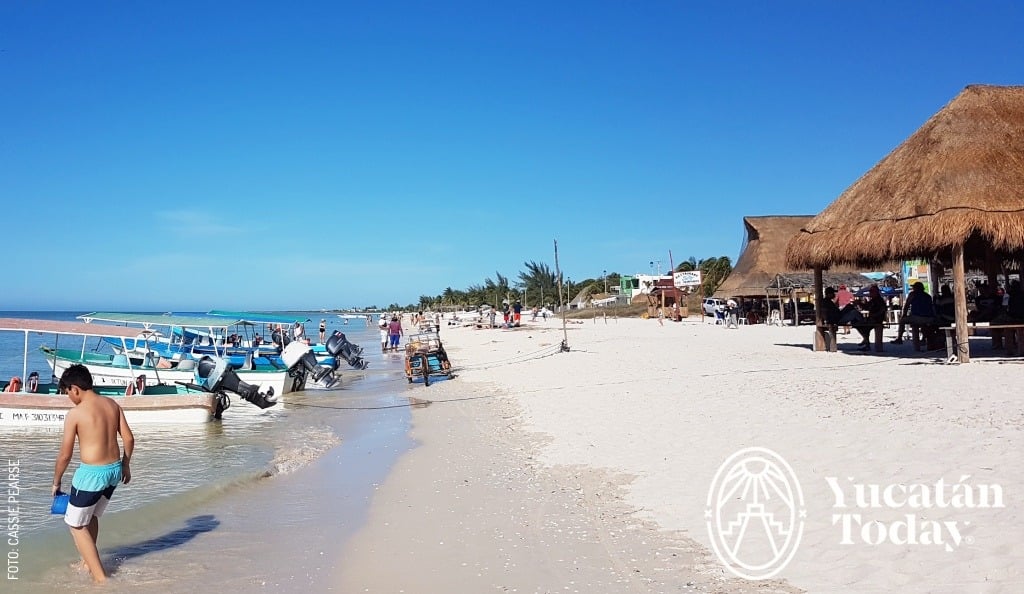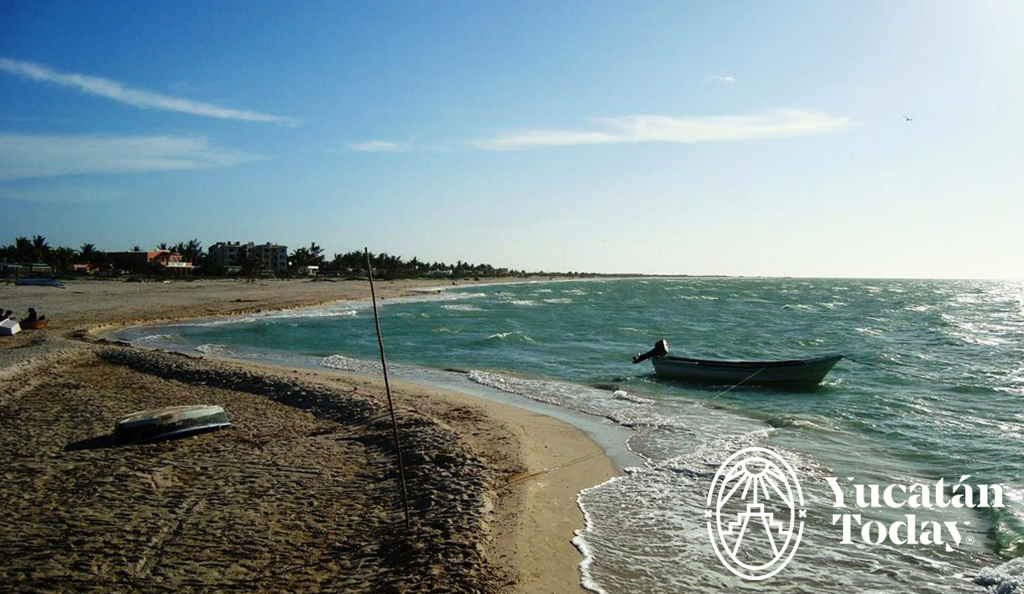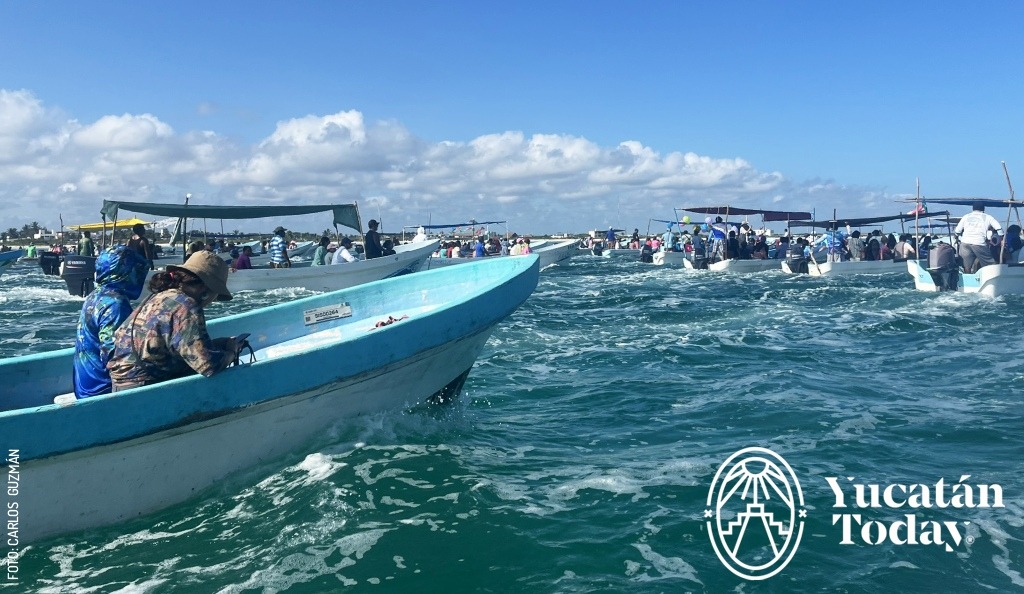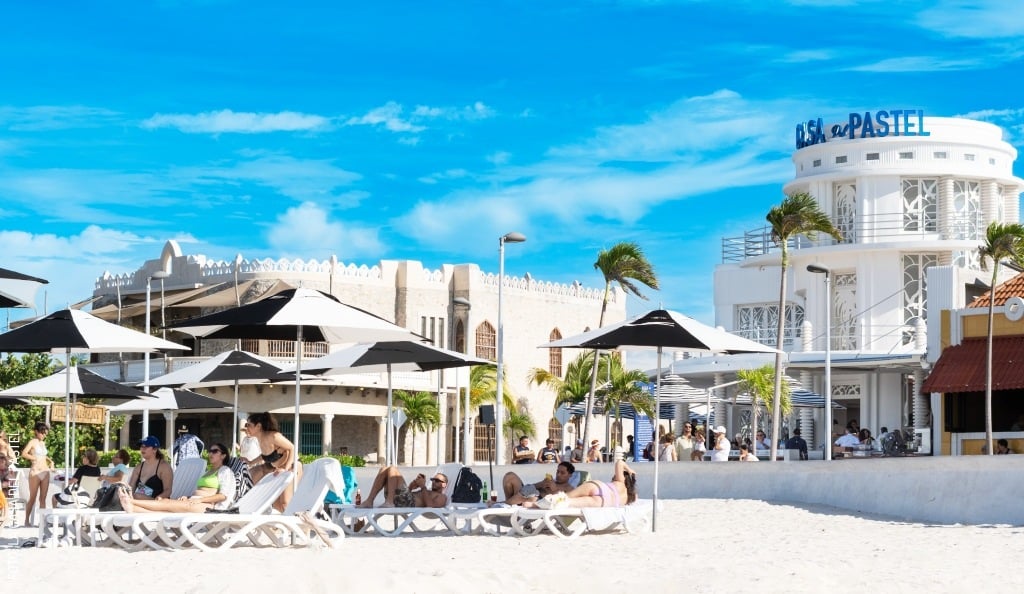Exploring Sisal: A Retreat on the Yucatán Coast
The small coastal town of Sisal, Yucatán offers a perfect blend of relaxation and adventure. Locals and visitors alike come here to enjoy the beautiful beaches, savor delicious seafood, explore nature and wildlife, and participate in various water activities. Many families consider Sisal their favorite beach to visit on the Yucatan coast because the sea is so inviting, the beaches aren't crowded, and the atmosphere leaves us feeling refreshed and recharged. Almost every visit ends with a sighting of flamingos flying by, and a moment to savor a radiant sunset.
History
Besides being full of beauty, the town of Sisal is also full of history. In the 1500s, it became the state’s main port and sole entry point for visitors. By the late 1800s, Sisal was the port from where Henequén fibers were exported from Yucatán to points all over the world. In 2020, Sisal was honored with the designation of Pueblo Mágico by the Mexican government, acknowledging its historical and natural appeal. These towns receive special attention and support for tourism and preservation efforts, promising visitors unforgettable experiences.
Here's a guide to help you discover all that awaits in this vibrant destination!
Relax on the Sisal beaches
.jpg?width=800&height=464&name=2408%20Muelle%20Sisal%20by%20Luna%20Barrera%20(3).jpg)
Sisal has a long, idyllic beach with wide shores and calm waters. It is known for its peaceful atmosphere and relatively untouched natural beauty. This is a great place for swimming and taking long walks along the shore; there are plenty of little shells along the shore that kids will particularly enjoy collecting. Aside from spring break when families from Mérida come flocking to the beach, Sisal makes for a perfect escape from the city heat and crowds. In the summertime when the sun is blazing hot, you can rent a palapa for the day for around $150 pesos: hang a hammock and indulge in some ultimate relaxation! Whatever you choose to do, a day at the beach will undoubtedly leave you feeling renewed.
Enjoy fresh seafood in Sisal

There is no better place to enjoy freshly caught seafood than in the fishing town of Sisal. Restaurants here serve dishes made from locally sourced seafood, often caught daily by fishermen. If you’re looking for a beachside restaurant that offers the perfect blend of ocean views, delicious seafood, and the convenience of bathrooms and showers for rinsing off after a refreshing dip in the sea, Muelle de Sisal tops the list. It has a great beach atmosphere and is in close walking distance to the pier. For families with young children, Colorines is another great option, as it has a pool right beside the eating area.
Kayak through Sisal’s mangroves

If you think the beach is relaxing, just wait until you experience the mangroves! This is a truly amazing experience you just can’t miss. A guided boat ride through the intricate network of mangroves lining the coast allows you to be fully immersed in nature and wildlife.
Here you will catch sight of hundreds of flamingos, both flying overhead before dusk and feeding in the same shallow water clearings that you’re in. Sisal is home to a variety of other bird species, making it a paradise for birdwatchers. For the adventurous, you can even see crocodiles during the nighttime tour!
The mangroves in Sisal are very important for the coastal ecosystem, provide a habitat for plants and animals, and protection against erosion. The guides are knowledgeable and ensure minimal disruption to the fragile ecosystem, emphasizing the importance of preservation as they navigate you through the water. Tours generally last around two hours. A great option for this experience is Sisal Expeditions. Kevin and his team will not only take you to explore the mangroves and a water spring, but can show you around Sisal and its many magical spots. Sisal Expeditions offers boat or kayak tours for birdwatching, with Yucatán's famous pink flamingos being the main stars.
Watch the sunset from the Sisal pier

After a day filled with adventure, head over to the pier and enjoy a stunning sunset. Don’t forget to take a photo at the iconic Sisal sign and treat yourself to an ice cream, conveniently located at the pier's entrance. As night falls, lights strung along the main street add to the charming ambiance and illuminate the souvenir shops and food stalls.
Additional activities in Sisal

If you’re looking for more adventures, you can easily find these water sports in Sisal:
- Fishing: Sisal is a fishing village, and fishing excursions are popular activities. You can join local fishermen on their boats for a day of fishing or try your hand at shore fishing.
- Paddleboarding: With its year-round warm weather and calm waters, Sisal offers the perfect setting for paddleboarding.
- Kiteboarding/Windsurfing/Parasailing: Thanks to the consistent wind, Sisal is also a great place for these wind-powered activities. The wide, sandy beaches offer ample space for launching and landing, while the shallow waters make it safe and enjoyable for all levels.
How to get to Sisal
- By car, take the Tetiz exit on Periférico and follow the signs for Hunucmá, then continue towards Sisal.
- By bus, Autobuses Oriente (Calle 50 x 65 y 67, Centro) offers two daily departures to Sisal, leaving at 8:30 am and 5 pm. The return trips from Sisal depart at 6 am, 11 am, and 7 pm. On Sundays, an additional run is available, departing Mérida at 12:30 pm, with a return trip from Sisal at 6 pm.



.jpg)









